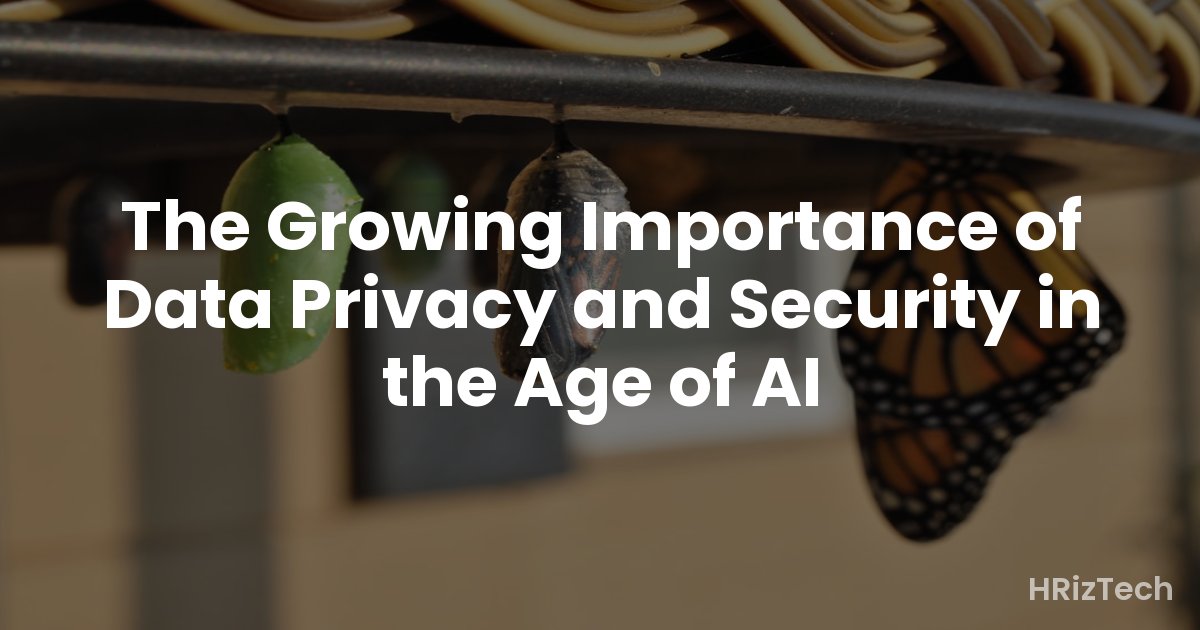The Growing Importance of Data Privacy and Security in the Age of AI

The Growing Importance of Data Privacy and Security in the Age of AI
- AI systems rely heavily on data, making privacy and security paramount.
- Data breaches can severely damage a company's reputation and lead to hefty fines.
- Proactive measures, including robust security protocols and ethical AI practices, are crucial.
- Staying updated on evolving regulations and best practices is essential for compliance.
- Investing in data privacy and security is an investment in long-term business success.
Artificial intelligence (AI) is rapidly transforming businesses across all sectors, offering unprecedented opportunities for innovation and efficiency. However, this transformative power comes with significant responsibilities, particularly concerning data privacy and security. In today's data-driven world, the ethical and practical implications of AI are inextricably linked to how we handle the vast amounts of personal and sensitive information that fuel these intelligent systems.
The Data Dependency of AI
At its core, AI thrives on data. Machine learning algorithms, the engine behind many AI applications, require massive datasets to learn, adapt, and make accurate predictions. This data often includes personal information – names, addresses, financial details, health records, and even biometric data. The more data an AI system has access to, the more powerful and effective it can be. This inherent dependency on data creates a critical vulnerability if not managed properly.
The Risks of Inadequate Data Security
The consequences of inadequate data privacy and security in the age of AI are far-reaching. Data breaches, whether accidental or malicious, can expose sensitive information to unauthorized access, leading to a multitude of problems. These include:
- Financial losses: Fines, legal fees, and the cost of remediation can be substantial.
- Reputational damage: Loss of customer trust and brand erosion can severely impact a company's bottom line.
- Legal repercussions: Non-compliance with data protection regulations like GDPR and CCPA can result in hefty penalties.
- Operational disruptions: Data breaches can disrupt business operations, leading to downtime and lost productivity.
- Security threats: Exposed data can be used for identity theft, fraud, and other malicious activities.
Proactive Measures for Data Protection
Protecting data privacy and security in an AI-driven environment requires a proactive and multi-faceted approach. It's not just about implementing technical safeguards; it's about building a culture of data responsibility throughout the organization.
Implementing Robust Security Protocols
Strong security protocols are the foundation of any effective data protection strategy. This includes:
- Data encryption: Protecting data both in transit and at rest using robust encryption algorithms.
- Access control: Implementing strict access control measures to limit who can access sensitive data.
- Regular security audits: Conducting regular security assessments to identify and address vulnerabilities.
- Intrusion detection and prevention systems: Deploying systems to detect and prevent unauthorized access attempts.
- Employee training: Educating employees about data security best practices and the importance of responsible data handling.
Ethical AI Development and Deployment
Beyond technical security, ethical considerations are paramount. The development and deployment of AI systems must be guided by ethical principles that prioritize data privacy and user rights. This includes:
- Data minimization: Collecting only the necessary data for the intended purpose.
- Transparency: Being transparent about how data is collected, used, and protected.
- Accountability: Establishing clear lines of accountability for data protection.
- Fairness and non-discrimination: Ensuring that AI systems are not biased or discriminatory.
- User consent: Obtaining informed consent from users before collecting and processing their data.
Staying Ahead of the Curve
The landscape of data privacy and security is constantly evolving, with new regulations and technologies emerging regularly. Staying informed about these developments is critical for businesses operating in the AI space. This includes:
- Monitoring regulatory changes: Keeping abreast of changes in data protection laws and regulations.
- Adopting best practices: Following industry best practices for data security and AI ethics.
- Investing in technology: Investing in advanced security technologies to stay ahead of emerging threats.
- Collaboration and knowledge sharing: Collaborating with other organizations and experts to share knowledge and best practices.
Investing in data privacy and security is not merely a compliance exercise; it’s a strategic imperative for long-term business success. By prioritizing data protection, businesses can build trust with their customers, protect their brand reputation, and avoid the significant financial and operational consequences of data breaches. In the rapidly evolving world of AI, a proactive and responsible approach to data privacy and security is not just a good idea – it's a necessity.
The Future of Data Privacy and AI
As AI continues to advance, the challenges surrounding data privacy and security will only become more complex. New technologies, such as federated learning and differential privacy, offer promising solutions for mitigating these risks while still harnessing the power of AI. However, ongoing vigilance, adaptation, and a commitment to ethical practices will be crucial to ensure that AI benefits society while safeguarding individual rights and freedoms.
What are your biggest concerns regarding data privacy and security in the age of AI, and what solutions do you see as most promising?
Comments
No comments yet. Be the first to comment!